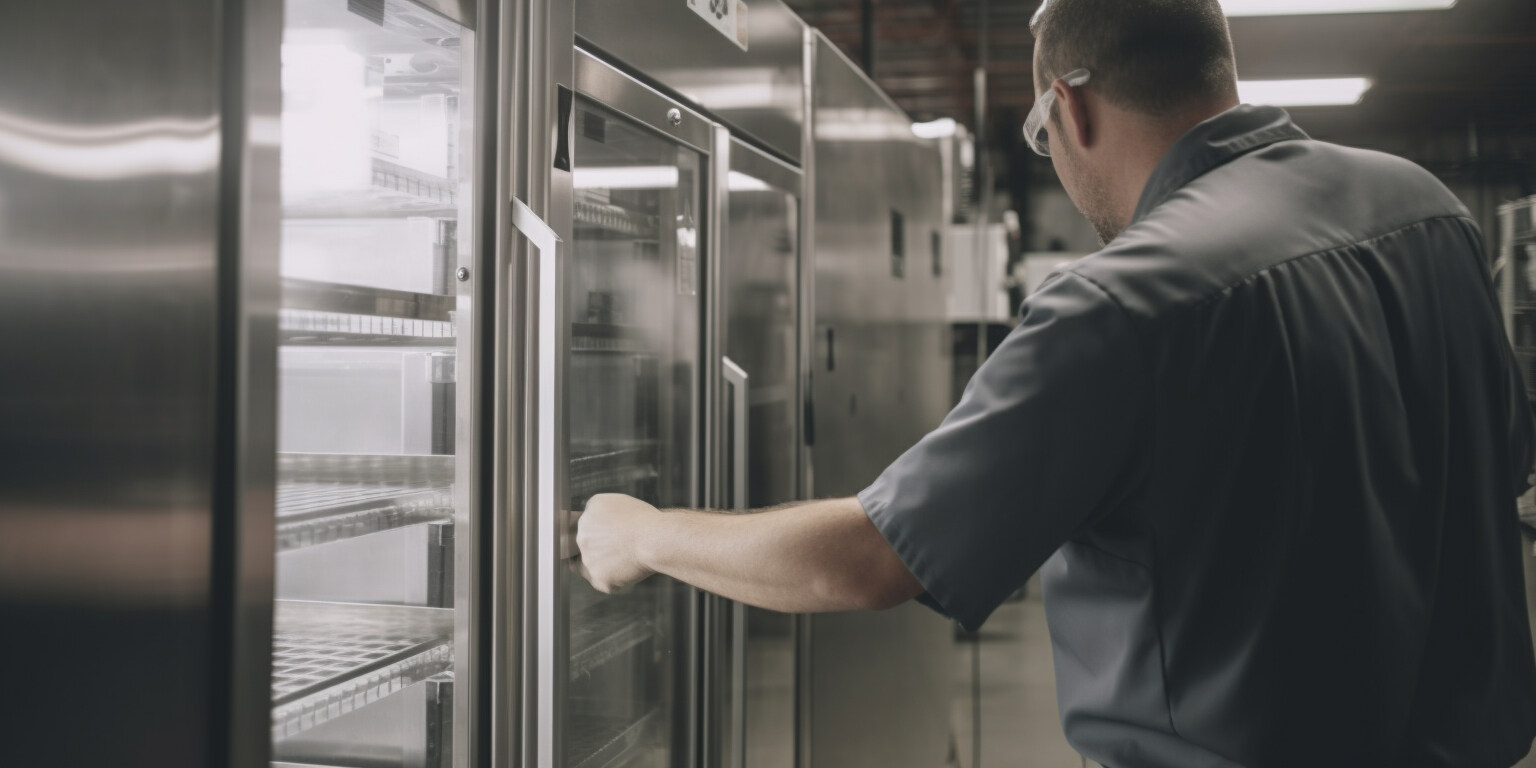Commercial refrigerators, coolers, and freezers are crucial devices for various businesses. Due to their importance, it is critical to understand the potential commercial refrigerator problems that can occur at any time. However, the issues related to them can differ. Thinking that it broke down is reasonable when it is determined there is an issue. Nevertheless, these refrigerator problems do not occur solely because of breaking down. They might be caused by issues that can be relatively simpler to eliminate or prevent compared to the device being broken down. Multiple problems can occur with your refrigerator, and these issues can cause more significant problems for you and your business. We will examine the five most common refrigerator problems and their solutions. These are:
- Not cold enough
- Water Leakage
- Sheet of Ice in Freezer
- Evaporation Fan Not Working Right
- Too Noisy
1. Not Cold Enough
One of the first common refrigerator problems is that commercial refrigerators need to be cold enough to store food without spoiling it. For various reasons, a commercial refrigerator might be unable to maintain the right temperature. This issue may be brought on by dirty condenser or evaporator coils, undercharged refrigerant, a damaged compressor, a faulty discharge tube or relief valve, or insufficient airflow.
It is crucial to ensure the refrigerator is set to the appropriate temperature before assuming it might be broken. For the fridge to properly circulate air, it must be set back from the wall a short distance, and the refrigerator door completely closed and sealed. This one could also result from a defective compressor. It is vital to have a professional examine the refrigerator if a steady humming sound is not heard.
2. Water Leakage
Among refrigerator problems, the water leakage stands out. It can be seen when the water in the commercial freezer leaks out and freezes up in the device. Fortunately, the most frequent causes have an immediate and straightforward solution that typically doesn’t require a call for a professional technician.
Water leakage from the freezer might result from a buildup of food particles blocking the drain pipe. All the debris can simply be drained manually without any assistance. Also, the ice maker and water dispenser may need to be fixed due to a frozen or clogged water supply, which can also cause water to seep onto the floor and pool under the commercial refrigerator. It is crucial to check and maintain it frequently to prevent this problem.
3. Sheet of Ice in Freezer
One of the common refrigerator problems is ice forming in the refrigerator, cooler, or freezer due to water leakage or something else. For several reasons, a commercial refrigerator may form ice. It can indicate that the refrigerant is leaking or might result from inadequate air ventilation. It’s possible that cleaning the fans, filters, or door gaskets might help with that.
Ensuring the defrost cycle is adequately configured. Ice can accumulate on the evaporator coils of the commercial freezer due to a low-temperature setting, accumulation of dirt and debris on the coils, a damaged evaporator fan motor, or an ineffective defrost system. Or the reason might be as simple as making the mistake of keeping the door open for too long. Either way, after understanding the reason behind the problem, cleaning up the commercial refrigerators and contacting a technician to help is recommended.
4. Evaporation Fan Not Working Right
Another common problem that can cause ice to accumulate all over the refrigerator is the evaporator fan malfunctioning. Suppose there is any ice buildup in the evaporator, which is assumed to be due to the evaporation fan. In that case, it can be reasonable to check it up and turn off the refrigerator so that the ice can melt before doing anything to the fan. After that, the evaporator coils should be cleaned; the drain pipes should be examined for obstructions to prevent this problem from happening again. Also, frequent check-ups and a maintenance routine can help prevent these refrigerator problems.
5. Too Noisy
Last but not least, one of the typical refrigerator problems is the noises the commercial cooler, freezer, or refrigerator makes while working, which can cause many things. The compressor, fans, and motors make a commercial refrigerator noise. Unusual or unpleasant noises from the refrigerator are not wanted and could result from a broken compressor, a misaligned fan motor, or other problems. Contacting a professional technician about the issue as soon as unusual noises are noticed is essential.
For a qualified expert to detect problems like this and prevent them before they become major, they should maintain the commercial refrigerator freezer or cooler regularly. Properly maintaining the commercial freezer, cooler, or refrigerator has several advantages. The appliance will use less energy and last longer. The commercial refrigerator is also less likely to malfunction and must be repaired. Due to this, it is vital to maintain the commercial refrigerator to prevent any problems from occurring.
The most common refrigerator problems are caused by a lack of maintenance or frequent check-ups to prevent these problems. Once these are done according to a timely system, preventing these problems can become more manageable. Manufacturers like Greencooler provide maintenance and check-up services for their customers to prevent these problems. After all, it is easier and simply better to prevent the problem rather than trying to repair the damages after the harm is done. You can get information about our maintenance and repair services on our website and contact us for support.
You can read our previous article at http://greencooler.international/choosing-the-right-commercial-refrigerator-size/

